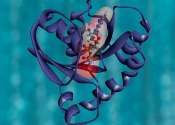Lighting the way to folding next-level origami
Origami may sound more like art than science, but a complex folding pathway that proteins use to determine their shape has been harnessed by molecular biologists, enabling them to build some of the most complex synthetic ...









